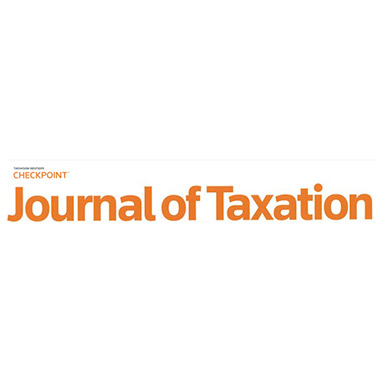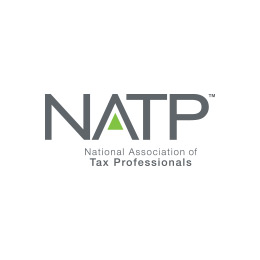Form 8854 plays a crucial role in the Internal Revenue Service’s (IRS) Offshore Disclosure Programs for expatriates. Failure to comply with these requirements can result in severe consequences, including financial penalties and potential criminal prosecution.
For expatriates, knowing what taxes you owe can be a serious pain. Even when you attempt to fully report your assets, mistakes still happen. Fortunately, these mistakes will not automatically result in penalties. The IRS offers several programs to help expatriates comply with their tax requirements. Through one of the Offshore Disclosure Programs, you can avoid the most serious financial consequences and charges of tax evasion.
For help determining what you owe, contact our attorneys for expatriation with offshore disclosures by calling McCormick Tax Law today at (215) 630-0861.
Requirements for Expatriation
If you wish to permanently relinquish your position as either a U.S. citizen or a legal permanent resident, you are said to be expatriating. However, some individuals might be required to pay a U.S. exit tax before they can renounce their U.S. status.
Not all expatriates are considered covered expatriates, and not all covered expatriates are obligated to pay any exit tax. That is why you should seek professional advice from our attorneys for expatriation with offshore disclosures before filing your Form 8854. The only individuals who are subject to the exit tax are those who meet the covered expatriate test, which can be met in three main ways.
Average Tax Liability Test
According to the IRS, if you are considering expatriation, your average annual net income tax liability for the five tax years ending before the date of expatriation should be calculated. If this liability is more than $178,000 for 2023, there will be exit tax consequences to consider before making the decision to expatriate.
Net Worth Test
On the date of your expatriation, if your net worth was equal to or greater than $2,000,000, then you are considered a high-net-worth individual. You will be required to pay an exit tax if this is the case.
Five-Year Tax Compliance Test
If you have failed to certify that you have abided by all federal tax obligations for the five years before the date of your expatriation, it can result in non-compliance. Therefore, it is crucial to certify on Form 8854 that you have met all the federal tax obligations for the five tax years preceding the date of your expatriation. If so, you will be subject to the exit tax.
Who Must File Form 8854
If you are an expatriate who has relinquished their U.S. citizenship or terminated their residency as a long-term resident, you are required to file an initial Form 8854. Additionally, the IRS requires you to file an annual Form 8854 if you expatriated before 2023 and deferred tax payment on any property on a previously filed Form 8854.
You will also need to file if you reported a deferred compensation item eligible for deferral on a previously filed Form 8854 or reported an interest in a non-grantor trust on a previously filed Form 8854. Filing these forms is crucial to ensure compliance with IRS regulations regarding expatriation and to avoid potential legal and financial consequences.
When You Must File Form 8854
In this process, you must attach Form 8854 to your income tax return for the year that includes your expatriation date and file your return by the due date. Additionally, it is necessary to send a copy of your completed Form 8854, clearly marked as a “Copy,” to the following address:
Internal Revenue Service
3651 S IH35
MS 4301AUSC
Austin, TX 78741
If your income does not meet the required threshold for filing a tax return, you are still required to send your Form 8854 to the address mentioned above by the date when your regular tax return would have been due.
The Penalties for Failing to File Form 8854
If you are obligated to submit Form 8854 for any particular tax year, and you do not file it or provide incomplete or inaccurate information, you will be subject to a penalty of $10,000 for that specific year. However, if you can prove that the failure to file was because of reasonable cause and not willful neglect, then you might be exempt from the penalty. Thus, it is important to ensure that all of the required information is included in the form to avoid any potential penalties.
Willfully failing to comply with the requirements of Form 8854 and failing to disclose offshore accounts and income can have serious legal consequences. One of the most severe consequences is the possibility of criminal charges, including tax evasion charges. Tax evasion is a serious offense that can result in imprisonment, significant financial penalties, and a tarnished reputation.
The IRS takes offshore tax evasion very seriously and has a range of tools at its disposal to detect and penalize noncompliance. Therefore, if you have offshore accounts and income, it is important to ensure that you comply with Form 8854 and all other relevant tax laws and regulations to avoid criminal prosecution.
Offshore Disclosure Programs that Can Help You Get Back into Compliance
Fortunately, you can still become compliant even if you failed to file your taxes or left information out. These programs are designed to help individuals avoid criminal penalties and give them a chance to come clean about unreported assets.
The Voluntary Disclosure Program
The IRS provides the Voluntary Disclosure Program as a means for individuals who have not filed their taxes to rectify their tax obligations. This program allows taxpayers with undisclosed U.S. income to avoid being subject to criminal tax investigations initiated for tax crimes such as fraud or tax evasion. To initiate a voluntary disclosure, the applicant must submit Form 14457 for preclearance along with Form 8854.
Streamlined Foreign Offshore Program
The IRS has also created the Streamlined Foreign Offshore Program with the aim of assisting non-U.S. residents. This program enables taxpayers to submit original or amended tax returns for previous years and international information returns. Through the Streamlined Foreign Program, taxpayers are allowed to disclose offshore bank accounts, assets, income, and investments that were previously unreported without facing penalties for past foreign account violations.
However, it is important that any mistakes made are classified as non-willful in order to qualify for this option. To be deemed non-willful, a person must have been unaware of the foreign account, income, or assets reporting requirement.
Willfulness does not necessarily imply a deliberate intention to deceive. Lower forms of willfulness, such as reckless disregard and willful blindness to tax requirements, will also be considered. Additionally, if a person was only non-willful for a short period of time or was willful but only had relatively small amounts of unreported income, they will not qualify for the program.
Our Attorneys for Expatriation with Offshore Disclosures Can Help
For your free case evaluation, call our attorneys for expatriation with offshore disclosures at McCormick Tax Law at (215) 630-0861.










